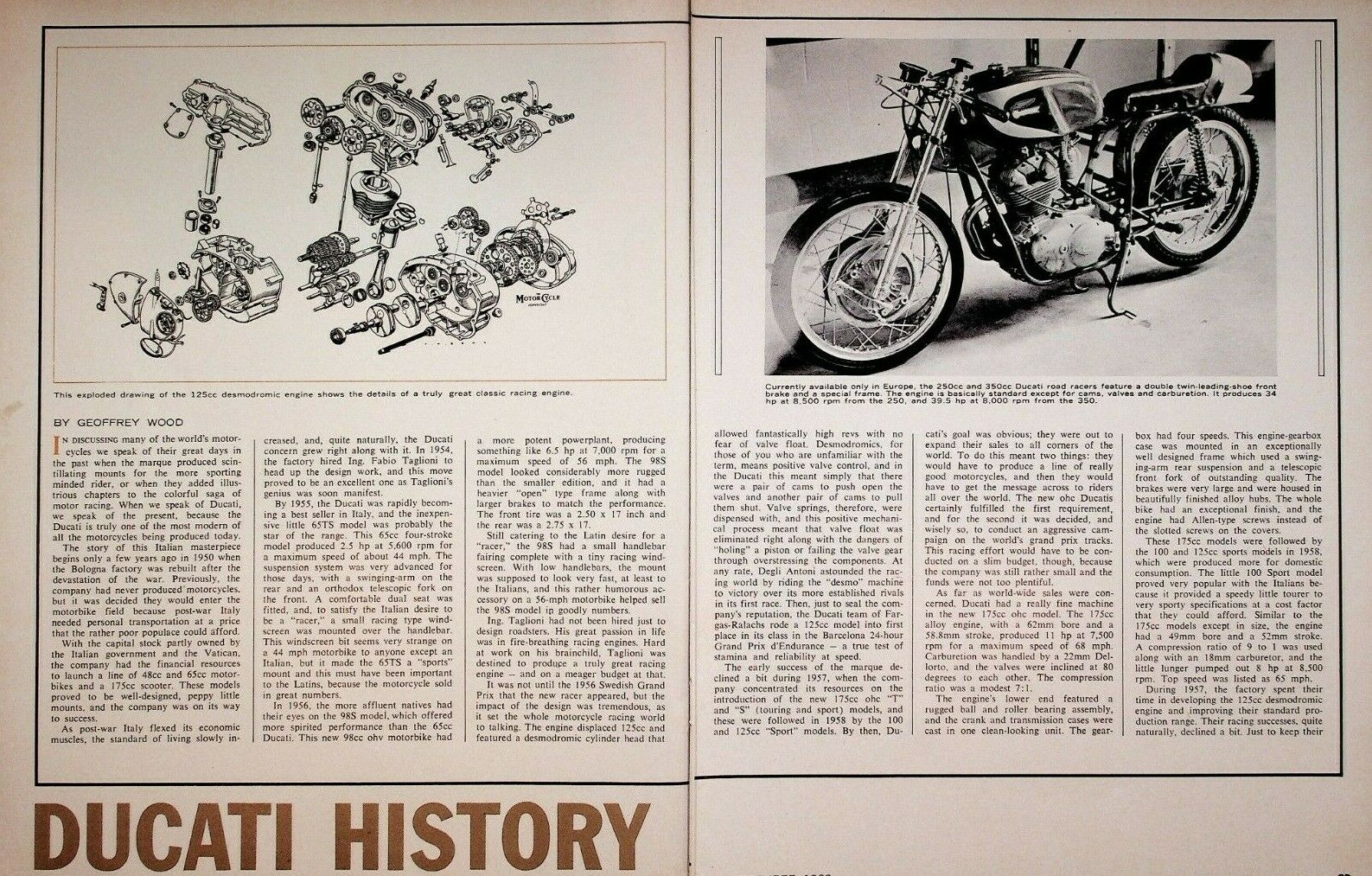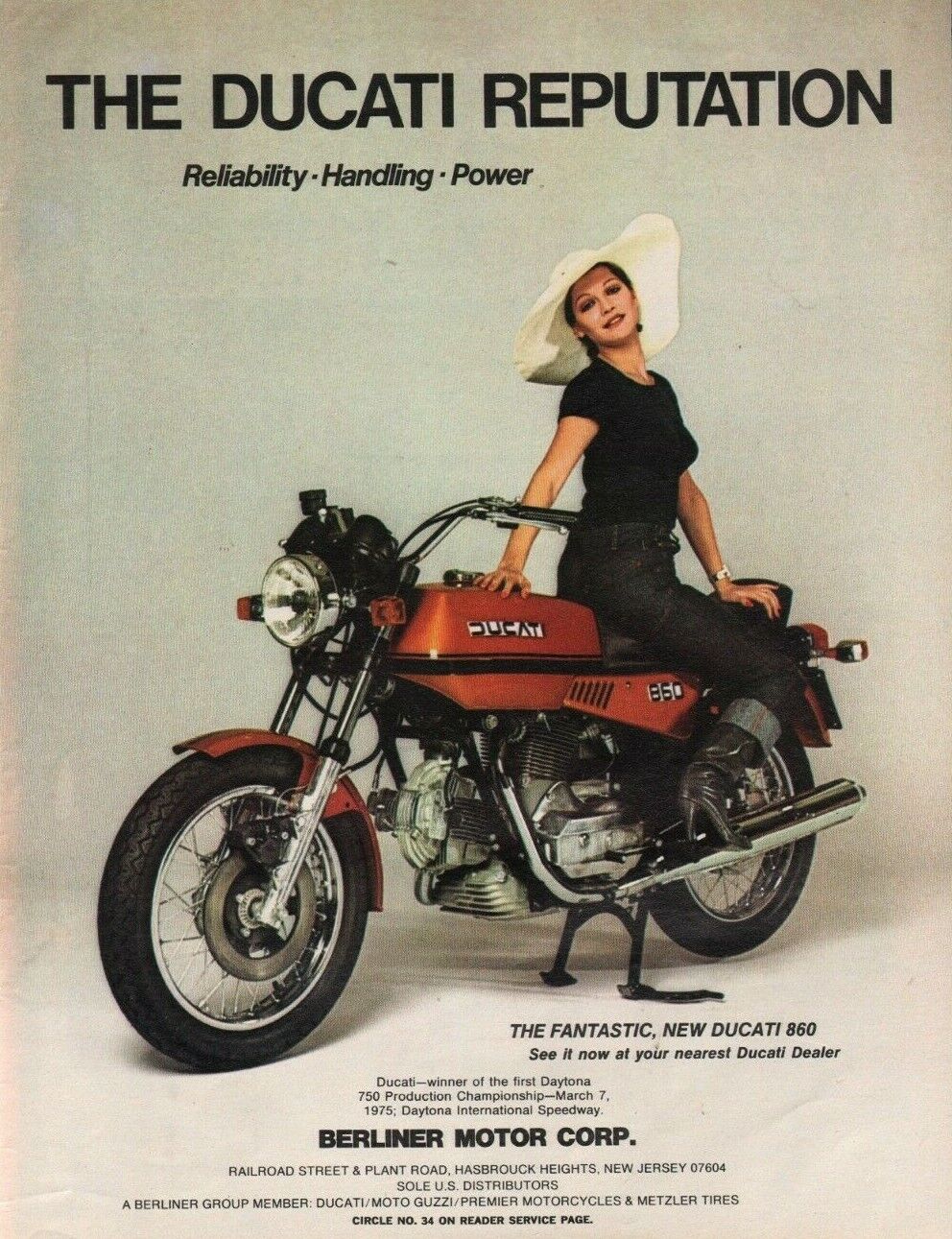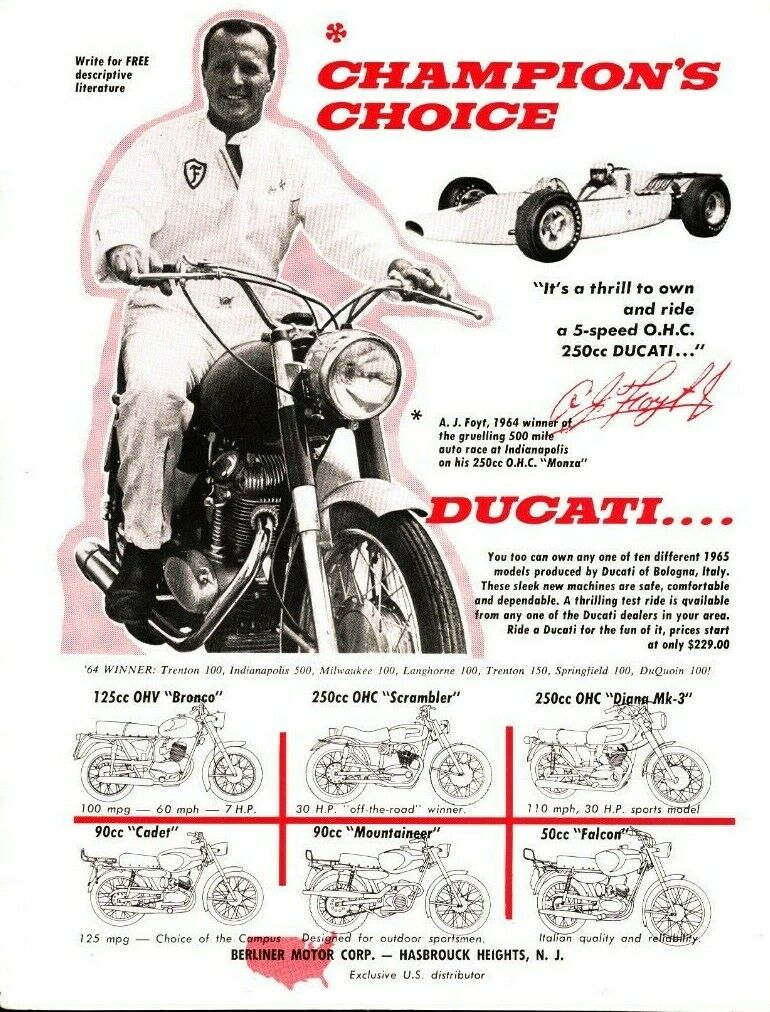-40%
1966 History of Ducati - 6-Page Vintage Motorcycle Article
$ 6.5
- Description
- Size Guide
Description
1966 History of Ducati - 6-Page Vintage Motorcycle ArticleOriginal, vintage magazine article
Page Size: Approx. 8" x 11" (21 cm x 28 cm) each page
Condition: Good
DUCATI HISTORY
In discussing many of the world’s motor-
cycles we speak of their great days in
the past when the marque produced scin-
tillating mounts for the more sporting
minded rider, or when they added illus-
trious chapters to the colorful saga of
motor racing. When we speak of Ducati,
we speak of the present, because the
Ducati is truly one of the most modem of
all the motorcycles being produced today.
The story of this Italian masterpiece
begins only a few years ago in 1950 when
the Bologna factory was rebuilt after the
devastation of the war. Previously, the
company had never produced motorcycles,
but it was decided they would enter the
motorbike field because post-war Italy
needed personal transportation at a price
that the rather poor populace could afford.
With the capital stock partly owned by
the Italian government and the Vatican,
the company had the financial resources
to launch a line of 48cc and 65cc motor-
bikes and a 175cc scooter. These models
proved to be well-designed, peppy little
mounts, and the company was on its way
to success.
As post-war Italy flexed its economic
muscles, the standard of living slowly in-
creased, and, quite naturally, the Ducati
concern grew right along with it. In 1954,
the factory hired Ing. Fabio Taglioni to
head up the design work, and this move
proved to be an excellent one as Taglioni’s
genius was soon manifest.
By 1955, the Ducati was rapidly becom-
ing a best seller in Italy, and the inexpen-
sive little 65TS model was probably the
star of the range. This 65cc four-stroke
model produced 2.5 hp at 5.600 rpm for
a maximum speed of about 44 mph. The
suspension system was very advanced for
those days, with a swinging-arm on the
rear and an orthodox telescopic fork on
the front. A comfortable dual seat was
fitted, and, to satisfy the Italian desire to
be a “racer,” a small racing type wind-
screen was mounted over the handlebar.
This windscreen bit seems very strange on
a 44 mph motorbike to anyone except an
Italian, but it made the 65TS a “sports”
mount and this must have been important
to the Latins, because the motorcycle sold
in great numbers.
In 1956, the more affluent natives had
their eyes on the 98S model, which offered
more spirited performance than the 65cc
Ducati. This new 98cc ohv motorbike had
a more potent powerplant, producing
something like 6.5 hp at 7,000 rpm for a
maximum speed of 56 mph. The 98S
model looked considerably more rugged
than the smaller edition, and it had a
heavier “open” type frame along with
larger brakes to match the performance.
The front tire was a 2.50 x 17 inch and
the rear was a 2.75 x 17.
Still catering to the Latin desire for a
“racer,” the 98S had a small handlebar
fairing complete with a tiny racing wind-
screen. With low handlebars, the mount
was supposed to look very fast, al least to
the Italians, and this rather humorous ac-
cessory on a 56-mph motorbike helped sell
the 98S model ip goodly numbers.
Ing. Taglioni had not been hired just to
design roadsters. His great passion in life
was in fire-breathing racing engines. Hard
at work on his brainchild, Taglioni was
destined to produce a truly great racing
engine — and on a meager budget at that.
It was not until the 1956 Swedish Grand
Prix that the new racer appeared, but the
impact of the design was tremendous, as
it set the whole motorcycle racing world
to talking. The engine displaced 125cc and
featured a desmodromic cylinder head that...
12427-6612-08









